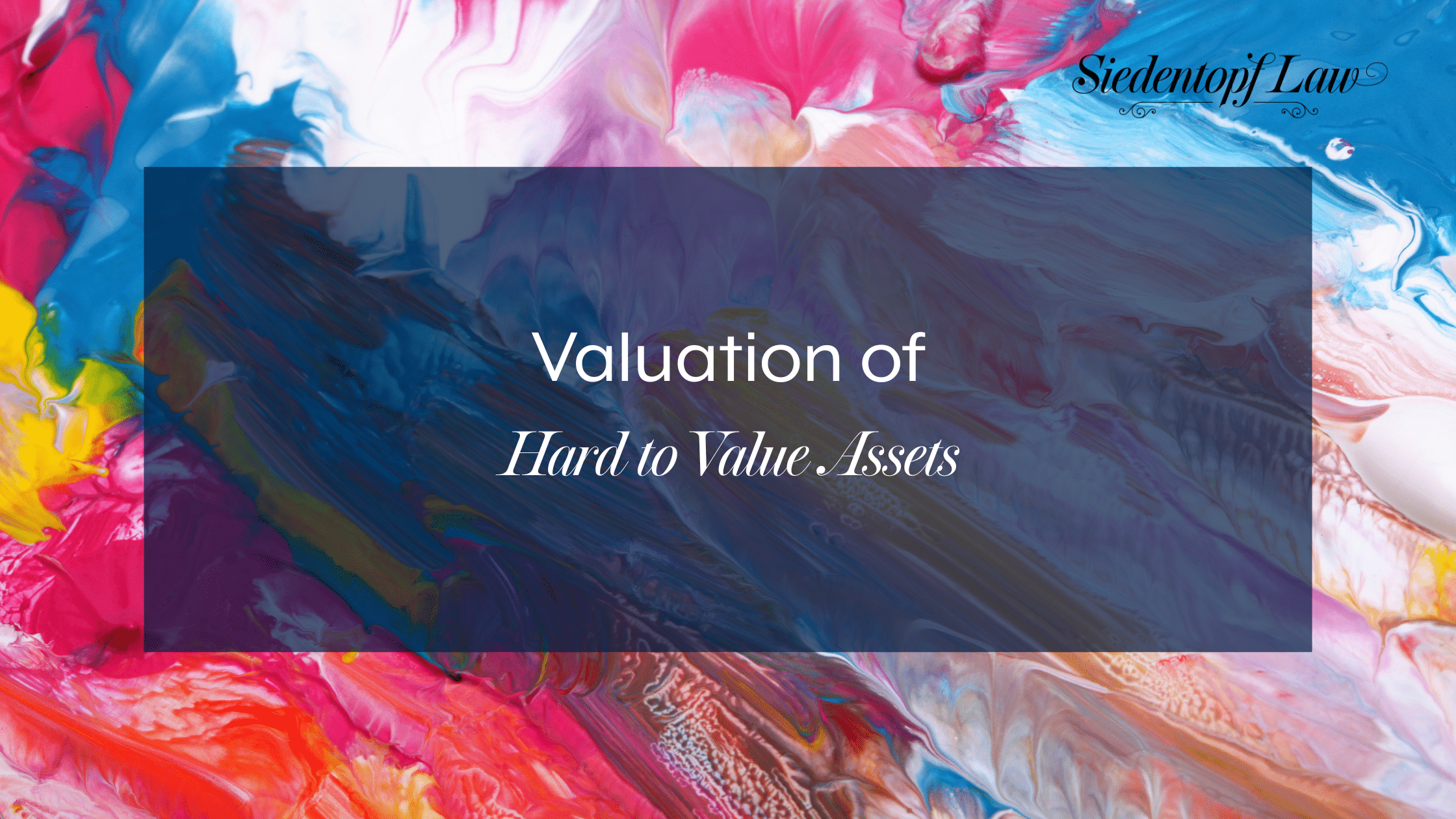Valuation of Hard to Value Assets

We say it a lot. Every estate is unique. Some estates are very straightforward with easily valued assets. Others are a lot more tricky to get an accurate valuation of.
So what do you do when your estate, or that of a loved ones, has items or assets that are hard to value?
Today we’ll dive into some of the more common and difficult assets to value and the reasons for determining their value to best of your ability.
So how do you know whether an asset is hard to value? These assets do not have easily ascertainable market values. This means it’s really hard to determine exactly what they are worth.
Examples of assets that may be difficult to value are:
- Collectibles
- Closely Held Businesses
- Art
- Specialty Real Estate
- Mineral or Timber Rights
- Life Insurance Trusts
Let’s take a closer look at what each of these categories could mean in your estate.
Collectibles
Some collectibles are just fun and sentimental. Your mug or magnet collection from all of your travels is an example of a fun and sentimental collectible. However it’s unlikely that there is any value to it beyond the sentimental and it’s ability to deliver coffee to your mouth for consumption.
But collectibles can be items that do, or may, hold significant value. Autograph collections, sports memorabilia, antiques, coins, or artifacts from archeological digs are just a few kinds of collectibles that may hold value. There are many more collectibles that could be of great value.
Art
Just like collectibles can be worth nothing or a whole lot, the same can be true for art. Some artwork is considered priceless. While other art may be worth a few dollars in an estate sale. Finding the value of artwork that is either somewhere in the middle or on the priceless end of the scale is important.
Closely Held Business
A closely held business is often referred to as a small business or a family business. Sometimes these businesses are easy to value because they are well established and don’t require that one person to be living to carry on and be profitable. Other times, there is a key person involved who keeps everything running. Losing that person could stall or stop any profits. Because business can be volatile depending on the economy, supply and demand, or even seasonality, it may be hard to actually know the value of a business.
Specialty Real Estate
Some real estate is very easy to value. Other more specialized real estate can be difficult to property assess. Some specialty properties may include farms, homesteads, timeshares, or land protected by conservation laws.
Mineral or Timber Rights
Mineral or Timber Rights does fall into the specialty real estate category, but it is so unique that it deserves its own category. The mining of minerals and harvesting of timber can be strictly legislated and can thus make determining the value of those rights more difficult. Also, the costs of these resources can be volatile making it difficult to determine the value.
Life Insurance Trust
A Life Insurance Trust is a Trust that allows life insurance benefits to pass to beneficiaries through the framework and guidelines of a trust agreement. These may be tricky to value because your life insurance policy may pay out different amounts depending on your age at death.
Reasons for Determining Value
You may be attempting to value your, or a loved ones, estate in advance of their death so you understand exactly what you’re working with. It’s good plan ahead so you can minimize tax liability.
You may be trying to ascertain value after a loved one’s death, again, so you know exactly what you’re dealing with. This may be to determine what tax liability this estate has. Or you may be trying to determine asset value so that beneficiaries are given their appropriate shares of the estate.
Either way, knowing the value of items within an estate is very important.
How to Determine Value
For some items, such as collectibles of sentimental value, it may not worth it or necessary to determine the actual value of the item.
But other items will need to be valued for tax purposes and to ensure equitable distribution to the beneficiaries.
To do this, you will likely need to hire a professional to appraise the asset and determine an accurate value. In some cases, it will not be worth the expense to hire a professional to value the asset. But in others it will be of the utmost importance.
Working with a skilled estate planning attorney can help in determining when it is appropriate, required, or worth it to employ a professional appraiser. Additionally, when you work with an estate planning attorney at our firm, we can help refer you to the best appraiser for your needs.
If you have questions about your estate or a loved ones estate, please don’t hesitate to give us a call. Call us at (404) 736-6066 or visit our website to schedule a consultation.


